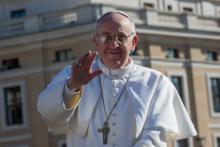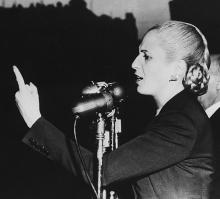Argentina's Dirty War

Since the moment of his election on March 13, Pope Francis has been warmly embraced by his own flock and even the media and the wider public in a way his bookish predecessor, Benedict XVI, was not.
Such an effusive welcome is especially good news for Catholic leaders who spent years fending off criticism of Vatican dysfunction under Benedict and a cloud of scandal and crisis at home. And the hot start for Francis is also crucial in building up a reservoir of good will that will be needed when the new pope refuses to bend on unpopular teachings or commits a gaffe of his own. Polls show that anywhere from 73 percent to 88 percent of American Catholics say they are happy with the selection of Francis, as opposed to about 60 percent who were happy with the choice of Benedict — and many of those are extremely pleased with the new pope.

Even as a non-Catholic, I was filled with hope when an Argentine cardinal said to be passionate about serving the poor stepped onto the balcony overlooking St. Peter’s Square as Pope Francis.
By taking the name of a church reformer, the former Cardinal Jorge Bergoglio promised a better day for an ossified institution whose people beg for hope while hierarchs defend medieval power and pomp.
By standing in silence and bowing his head for the crowd’s blessing, Francis showed a humility that could inspire believers grown weary of Roman arrogance. In greeting the crowd, the new pope showed a common touch that could repurpose a global movement from being lost in scandal and self-serving.

In 1974, when the Rev. Jorge Bergoglio was the top Jesuit in his native Argentina, a former nightclub dancer named Isabel Peron came to head the nation – an accidental and weak president.
Isabel Peron served less than two years in office before a right-wing military coup placed her under house arrest, and launched a seven-year campaign of torture and killings of tens of thousands of trade unionists and other leftists: Argentina’s Dirty War.